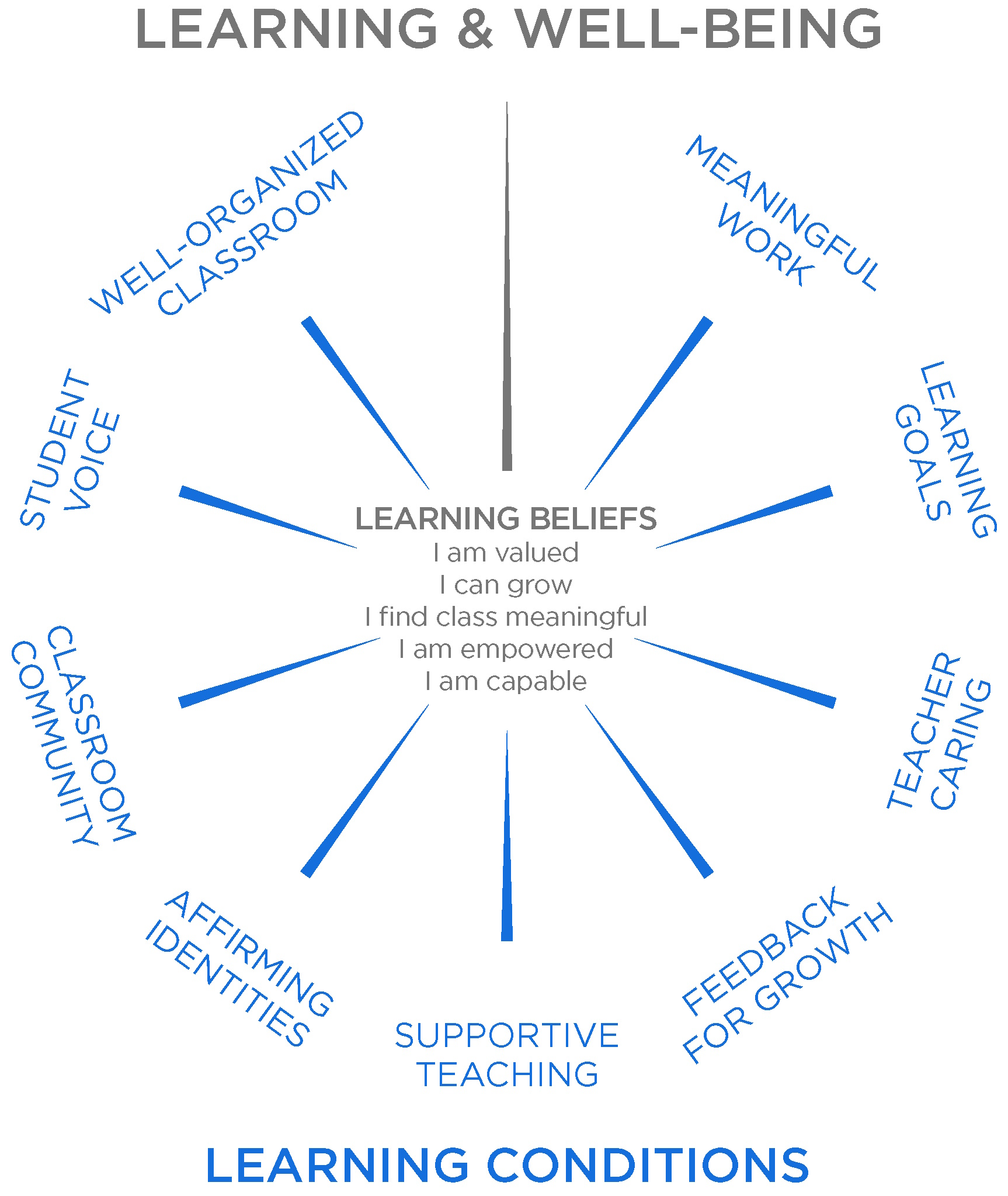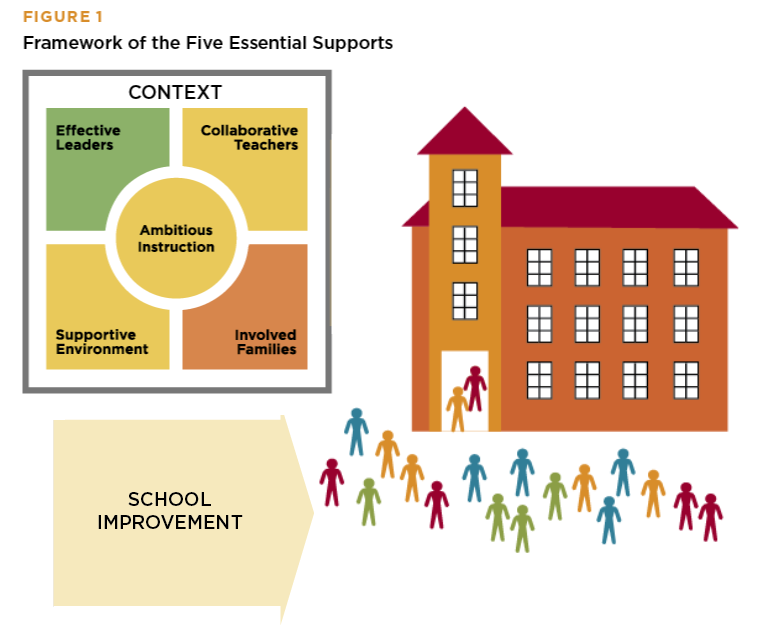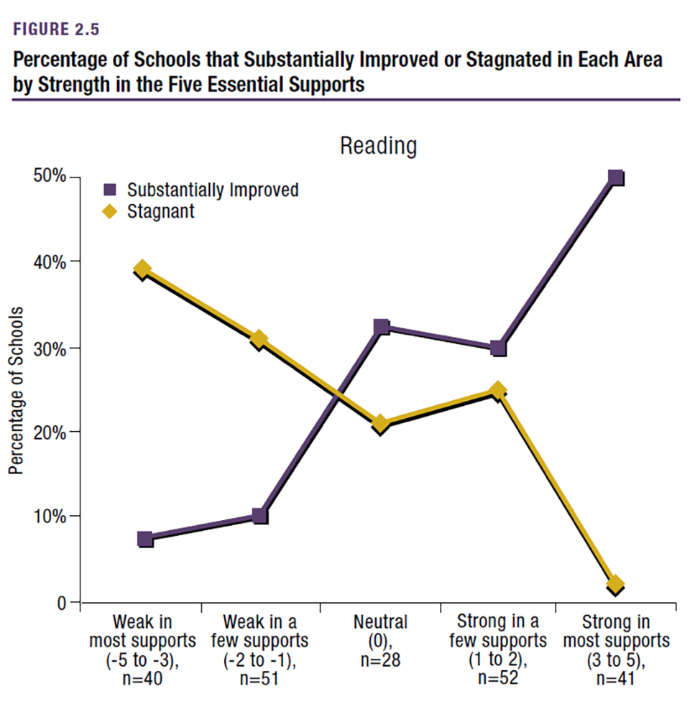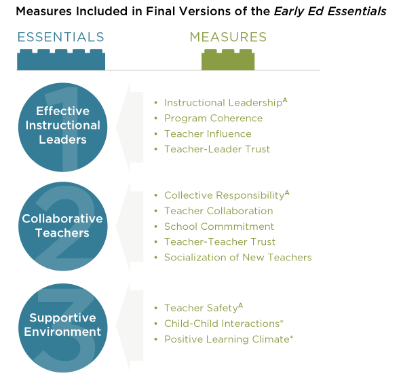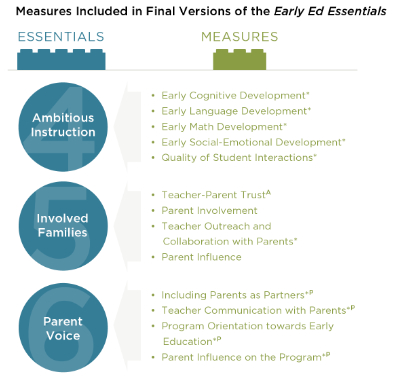Cultivate
In 2016, the validation work for Cultivate was completed and published in a UChicago Consortium working paper. Cultivate is also currently being used in new large-scale studies of the relationships between classroom learning conditions and student outcomes. This new tool has the potential to grow new areas of research that can expand our understanding of the role of classroom learning conditions and student experience in students' learning and development, and how this picture may look different for different grade levels, subject areas. or student groups. As we continue working on Cultivate research, we will provide additional updates as they become available.
5Essentials
Researchers use the 5Essentials surveys to evaluate school climate effects on a variety of outcomes, including student grades, test scores, attendance, and teacher retention. Since the validation work of Organizing Schools for Improvement (which focused on data between 1991 and 2005), Consortium studies indicate continued importance of the 5Essentials measures. For example, a 2015 study of schools in CPS and Illinois (Klugman, Gordon, Sebring, & Sporte, 2015) found that strength in the essential supports were associated with higher graduation rates and ACT scores. In What Matters for Staying On-Track and Graduating in Chicago Public Schools (2007), we found numerous associations between measures and strong student outcomes. Measures of school climate from the teacher surveys have similarly been found to be predictive of positive school outcomes. A study by Allensworth, Ponisciak, and Mazzeo (2009) demonstrated teachers’ survey reports effectively measured work conditions and predicted a school’s ability to retain teachers. Teachers tended to stay in schools where principals were strong instructional leaders, where there was strong trust among teachers, parents, and principals, and where teachers saw each other as partners in school improvement. We have also evaluated how different aspects of effective leadership can set the conditions for student growth, finding that achievement growth was higher in schools that leveraged teacher leadership to promote improvements in school climate (Sebastian, Allensworth, & Huang, 2016).
Additionally, researchers from universities and research institutions across the country have used survey items to develop their understanding of school climate. For example, one study examined that relationship that existed between neighborhood context, school climate (specifically students’ perception of safety), and school-level academic achievement. Another study from Wayne State University in Detroit, in examining the role that school climate played on chronic absenteeism, found that traditional public schools that scored higher on the 5Essentials had lower rates of chronic absenteeism.
If you are interested in obtaining a copy of the 5Essentials Survey, please click here.
